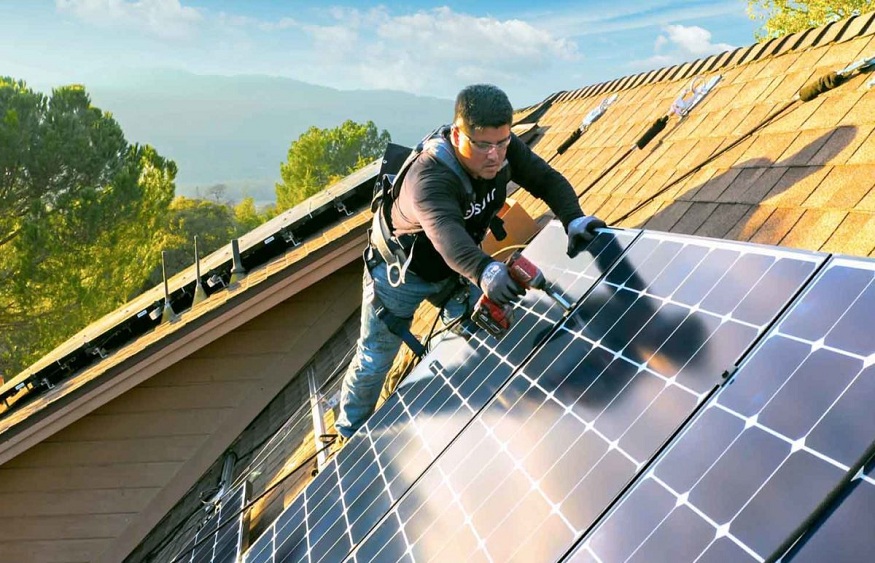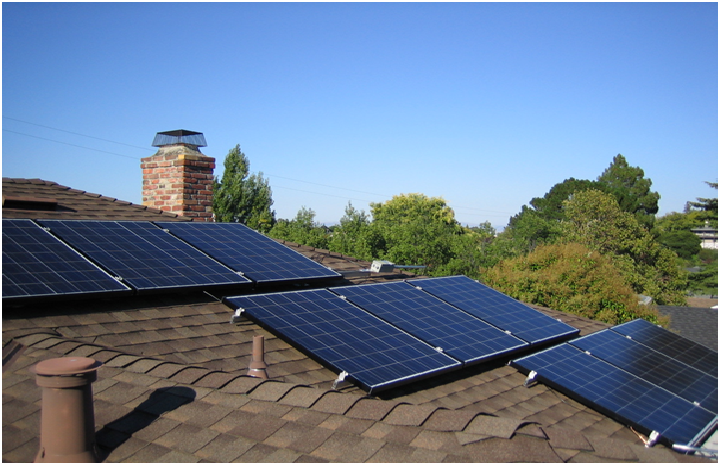Are you thinking about installing a home solar panels system but are worried about how you are going to pay for it? Well, according to the experts at Vivint Solar, the good news is that there are several financing options available that can help you go solar without breaking the bank. In this comprehensive guide, we will explore the different ways to pay for a solar panel installation and help you choose the option that will suit not only your needs but also your budget.
Types of Solar Panel Financing

There are a few different options when it comes financing solar panel installations. Here are some of the most common ones:
- Cash
- Loans
- Leases
- Power purchase agreements (PPAs).
Each option has its pros and cons, so it is important to choose the one that is right for you. Let’s take a closer look at each option.
Cash Financing
The easiest way to pay for solar panels is with cash; paying in this way has several benefits. For starters, you will not need to pay any interest on a loan or lease. Moreover, you might have the ability to negotiate a cheaper price if you are paying in cash.
However, solar panel installations are not cheap and not everyone has the cash on hand to pay tens of thousands of dollars for an installation upfront. If you are considering this option, here are a few tips to help you save the money to pay for it:
- Create a budget that you can stick to
- Find ways of reducing your energy bills in the meantime (switch to energy-efficient appliances and install LED lights, for example)
- Check if there are programs available in your area to help with the cost, such as tax credits or incentives.
Solar Loans
If you don’t have the cash to pay for a solar panel installation, another option to consider is a solar loan. With a solar loan, you would borrow the money for the cost of the installation and then pay it back in monthly installments.
One of the main advantages of solar loans is that they usually have lower interest rates than a traditional loan. Furthermore, some solar loan providers provide payment plans without any initial payment required, meaning you will not have to pay any upfront costs.
If you are considering a solar loan, the following are a few tips to help you choose the right one:
- Look at a number of providers and compare their rates and terms
- Find a solar loan without any prepayment penalties (this means you can pay it off early if you can afford to)
- Find a loan that suits your budget as well as timeline.
Solar Leases
Solar leases are another common financing option for those considering solar panels for their homes. A solar lease means you are essentially renting the solar panel system from the solar company. The provider will install and maintain the system for the duration of the lease and in exchange you will pay a fee every month.
One of the main benefits of solar leases is that there will be no upfront payments required from you. In addition, the amount of the monthly lease payment is likely to be lower than what you would pay for a loan.
If you are considering a solar lease to finance a solar panel system, the following are some tips to help you choose the right one:
- Find a lease agreement that has a fixed monthly payment
- Make sure the lease length suits your requirements
- Be sure that you fully understand the terms of the lease, (including any requirements for maintenance).
Power Purchase Agreements (PPAs)
A PPA is similar to a solar lease but is structured slightly different. If you take out a PPA, you agree to buy the solar power generated by the provider. The provider then installs and maintains the system at no upfront cost to you.
The biggest benefit of a PPA is that you are guaranteed to save money on your energy bills. Moreover, because the provider is responsible for maintenance, there will be no additional costs during the agreement.
If you are thinking that a PPA might be the right option for you, the following are a few tips to help you choose the right one:
- Find a provider with a good reputation
- Make sure the PPA length suits your requirements
- Check the agreement to make sure you fully understand all the terms, especially any mention of rate escalations.
Other Considerations
Before you choose a financing option, there are a few other factors to consider:
- Tax credits and incentives: In some areas, you may be eligible for tax credits or other programs that can help to offset the cost of the solar panel installation. Check to see what is available in your area.
- Size and location of the system: Your options for finance may be affected by the size and location of the solar panel system you choose. For example, if your roof space is limited, you may need to choose a smaller system or place the solar panels at ground level instead.
It is especially important to do your research before agreeing to a solar panel installation. You need to find a provider that can offer you a variety of financing options. Look at a number of providers and compare rates as well as terms. Do not be afraid to ask questions if you are not really sure about something in particular.
Conclusion
There are a number of different ways to pay for a solar panel installation including cash, lease, loan, and PPA. Each of the options has its benefits and drawbacks, so it is important to choose the one that fits your needs. Furthermore, there are other things to consider before you decide, such as the size of the system you can get, where it needs to be located as well as whether there are any tax credits available to you where you live.


